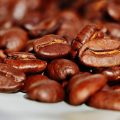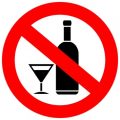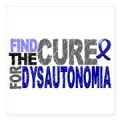Table of Contents
Medical scientists may yet to fully understand the cause of POTS, but this medical condition, along with its symptoms; can be addressed with non-pharmacological treatments. In this entry, we will talk about the most common measures doctors recommend for people suffering from POTS. It is however, important to note that treatments for POTS; pharmacological or not, should be customized according to the patient’s needs; as people react to different treatments depending on the subtype of POTS and their body’s responses. Thus, it is important to always speak to your doctor before making any treatment plans.
Take Smaller Meals
After a large meal, a large percentage of our blood gets redirected to help in digestion process. For patients of POTS, this can easily magnify the symptoms. Thus, it is highly recommended to take several smaller meals throughout the day than the standard three large ones.
Eat Low Carb and Lean Protein
Experts suggest eating more lean protein such as salmon, chicken breasts (skinned), skim milk, and low fat yogurt; and cutting down on simple carbs such as flours and refined sugars.
Check Your Gluten Reaction
Patients of POTS who suffer from gastrointestinal symptoms are recommended to speak to their doctors and get checked for Celiac Disease. Some blood tests for this disease require eating gluten for a couple of weeks or more prior to the test; thus, don’t switch to gluten-free diet entirely until after your speak with your doctor about the possible test for Celiac blood. There seems to be another group of people who are non-Celiac gluten sensitive; which is why it is important to test even if you don’t have Celiac disease.
The best way to test if being non-Celiac gluten sensitivity is what causes or contributes to gastrointestinal symptoms; is to take gluten-free diet on a trial basis. Also, some people notice excellent benefits in just short period of time.
Check Your Reaction to Caffeine
Caffeine may be helpful for POTS, but not for everyone. Thus, it is important to examine if caffeine intake really helps, or if you should avoid it entirely.
Check Your Reaction to Dairy
Just like gluten, some people may be lactose intolerant, while others are allergic to milk. Some patients of POTS say they feel less of their symptoms after cutting down their intake of dairy products. Note that, people who are lactose intolerant can still consume small amount of daily products, depending on their sensitivity. Also, there are supplements available that contains the lactase enzyme helpful for lactose digestion. Should you decide to eliminate dairy, make sure you have a good source of calcium for your diet.
Avoid Alcohol
Alcohol can easily worsen POTS symptoms; as it causes the human body to dehydrate easily; which leads to hypotension through dilation of veins.
Exercise
We all know the importance of physical activity for general health, and how it can contribute to treatment of various physical and medical conditions. For POTS patients, doctors suggests aerobic exercise such as biking, swimming, rowing, and exercises that focuses on strengthening of the core and legs to aid against POTS symptoms.






 I love to write medical education books. My books are written for everyone in an easy to read and understandable style.
I love to write medical education books. My books are written for everyone in an easy to read and understandable style.